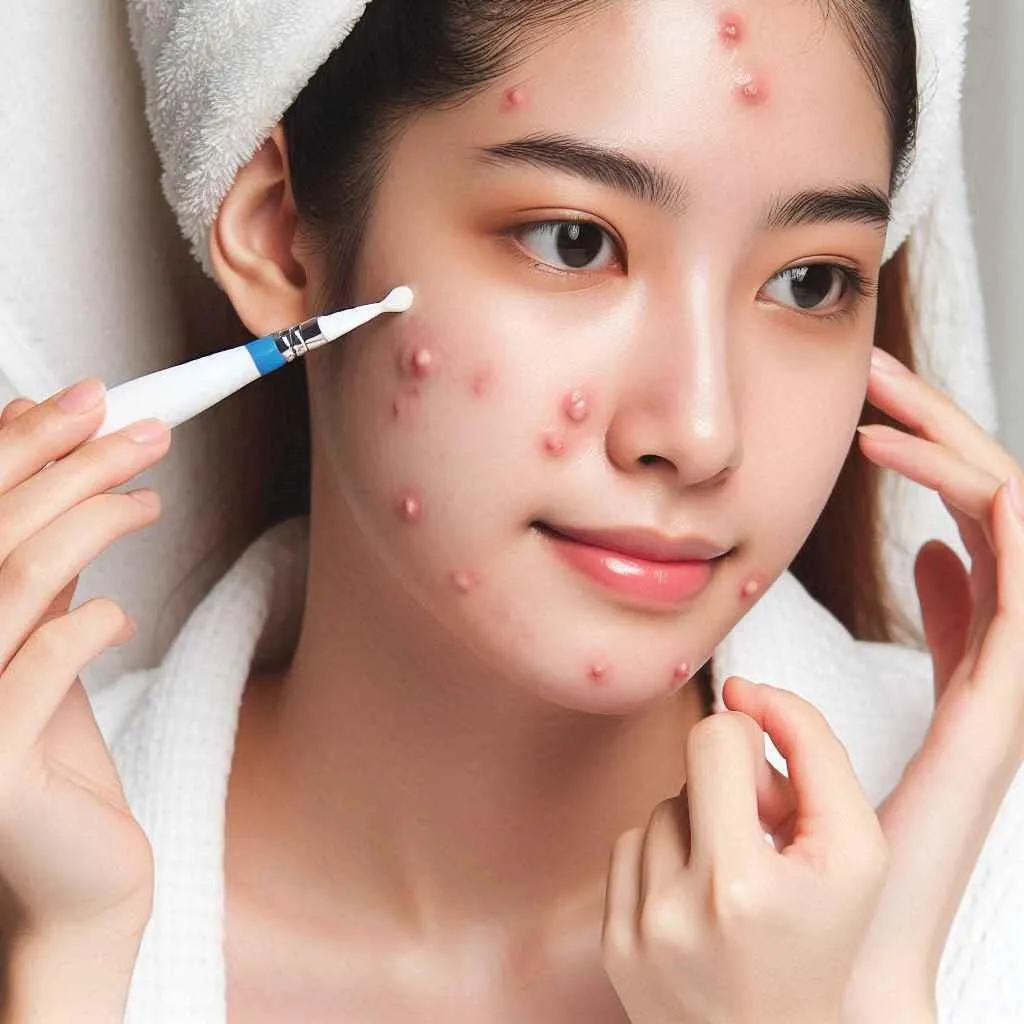St. Pete Location
Bradenton Location
Patient Education
We're passionate about helping people achieve their healthiest, happiest skin. Whether you're struggling with acne, eczema, rosacea, or any other skin concern, we're here to offer support, information, and inspiration.

Acne: Understanding Causes, Treatments, and Prevention Tips | Leah Michel APRN, FNP-BC
ACNE
Acne is one of the most prevalent skin conditions, affecting up to 50 million Americans annually (Yale Medicine, n.d.). While often associated with teenagers, acne can impact individuals of all ages, causing both physical and emotional distress. In this comprehensive guide, we'll explore the causes, treatments, and latest research on acne to help you better understand and manage this common skin concern especially to our valued clients having their acne treatment at St. Pete.
What Causes Acne?
These are some factors that contribute to its development:
Excess oil production (1).
Bacteria (Cutibacterium acnes) (4).
Inflammation (3).
Hormonal changes (2).
Diet and lifestyle factors (1).
Recent studies have shown that genetics also play a significant role in acne susceptibility. Researchers have identified specific genes that may increase the risk of developing acne, offering new insights into potential treatment targets (3).
When Does Acne Occur?
1. Adolescence:
Acne most commonly begins during puberty, typically between ages 10-13 in girls and 12-15 in boys (2).
Hormonal changes during puberty stimulate increased sebum production, which can lead to acne (3).
2.Teenage Years:
Acne often peaks in the mid-to-late teenage years.
Up to 85% of teenagers experience some form of acne (4).
3. Young Adulthood:
Many people continue to experience acne into their 20s and early 30s.
About 50% of women and 25% of men in their 20s have acne (4).
4. Adult Acne:
Acne can persist or develop for the first time in adulthood.
Women are more likely than men to experience adult acne, often due to hormonal fluctuations (4).
5. Specific Life Stages for Women:
Menstrual cycles: Many women experience breakouts before or during their periods (2).
6.Pregnancy: Hormonal changes during pregnancy can trigger acne (2).
Menopause: Some women develop acne during menopause due to hormonal shifts (2).
7. Situational Factors:
Stress can trigger or worsen acne at any age (1).
Certain medications can cause acne as a side effect (1).
Occupational exposures to oils or chemicals can lead to acne (1).
8. Genetic Predisposition:
People with a family history of acne are more likely to develop it themselves (2).
9. Seasonal Variations:
Some people experience more breakouts in certain seasons, often worsening in hot, humid weather (2).
While acne is most common during adolescence, it's important to note that it can occur at any age. The severity and duration of acne can vary greatly between individuals. If acne is persistent or severe, it's advisable to consult a dermatologist for proper diagnosis and treatment.
Types of Acne

Understanding the different types of acne can help in choosing the most effective treatment:
Whiteheads: Closed clogged pores (1).
Blackheads: Open clogged pores (1).
Papules: Small red, tender bumps (1).
Pustules: Papules with pus at their tips (1).
Nodules: Large, solid, painful lumps that appear on the face, chest, and back (1).
Cysts: Painful, pus-filled lumps beneath the skin's surface (1).
Effective Acne Treatments
Treating acne often requires a multi-faceted approach. Here are some of the most effective treatments available:
Topical Treatments:
Benzoyl peroxide: Works by killing acne-causing bacteria (Cutibacterium acnes) on the skin and in hair follicles (4).
Salicylic acid: Unclogs pores and reduces inflammation (2).
Retinoids: Help unclog pores by promoting cell turnover. They reduce inflammation and prevent new acne lesions from forming (2).
A 2022 study found that combining benzoyl peroxide with a retinoid can significantly improve acne symptoms compared to using either treatment alone (2).
Oral Medications:
Antibiotics: Control bacterial growth and reduce inflammation (1).
Isotretinoin: Powerful medication for severe, cystic acne (2).
Hormonal treatments: Birth control pills or anti-androgen medications for hormonal acne(1).
Advanced Treatments:
Chemical peels: Remove dead skin cells and unclog pores (2).
Light therapy: Uses specific wavelengths of light to kill bacteria and reduce inflammation (2).
A recent meta-analysis revealed that light therapy, particularly blue light, can be an effective and well-tolerated treatment for mild to moderate acne (2).
Diet and Acne: Separating Fact from Fiction
The connection between diet and acne has been a subject of ongoing debate for many years. Recent research has shed new light on this connection:
High-glycemic foods: Studies suggest that a diet high in refined carbohydrates and sugar may exacerbate acne (3).
Dairy: Some research indicates that consuming dairy products, particularly skim milk, may increase acne risk (3).
Omega-3 fatty acids: These healthy fats found in fish and nuts may help reduce inflammation and improve acne symptoms (3).
While more research is needed, maintaining a balanced diet rich in fruits, vegetables, and whole grains may contribute to healthier skin overall (3).
The Psychological Impact of Acne
It's crucial to address the emotional toll that acne can take. Studies have shown that individuals with acne are at higher risk for:
Low self-esteem (1).
Depression (1).
Anxiety(1).
Social isolation(1).
A 2020 study found that acne severity was positively correlated with depression and anxiety symptoms, highlighting the importance of addressing both the physical and psychological aspects of acne (1).
Natural Remedies and Lifestyle Changes
While medical treatments are often necessary, some natural remedies and lifestyle changes may help manage acne:
Tea tree oil: Known for its antimicrobial properties, tea tree oil may help reduce acne lesions (1).
Green tea: Applied topically, green tea may help reduce sebum production and inflammation (1).
Stress management: Techniques like meditation and yoga may help reduce stress-related acne flare-ups (1).
Regular exercise: Physical activity can help regulate hormones and reduce stress, potentially improving acne (1).
Proper skincare routine: Gentle cleansing and avoiding harsh products can help maintain skin health (1).
Future Directions in Acne Research
Exciting developments in acne research are paving the way for new treatments:
Microbiome-based therapies: Targeting the skin's microbiome to restore balance and reduce acne-causing bacteria (3).
Personalized treatments: Using genetic information to tailor acne treatments to individual patients (3).
Novel drug delivery systems: Developing more effective ways to deliver acne medications directly to the skin (3).
Conclusion

Understanding acne is an ongoing process, with new discoveries constantly reshaping our approach to treatment. By staying informed about the latest research and working closely with a dermatologist, you can develop an effective strategy to manage your acne and achieve clearer, healthier skin.
Clear Skin Awaits You at My Skin St. Pete Dermatology!
Are you struggling with acne and longing for clear, radiant skin? Look no further! Our expert dermatologists use the latest technology and personalized care to help you achieve the clear skin you've always wanted. Whether you're dealing with occasional breakouts or persistent acne, we have the right solution for you. Have your acne treatment at My Skin St. Pete, we offer advanced acne treatments in St. Pete tailored to your unique skin needs.
References
Cleveland Clinic. (2023). Acne: Types, Causes, Treatment & Prevention. Retrieved from https://my.clevelandclinic.org/health/diseases/12233-acne
National Institute of Arthritis and Musculoskeletal and Skin Diseases (NIAMS). (2023). Acne: Diagnosis, Treatment, and Steps to Take. Retrieved from https://www.niams.nih.gov/health-topics/acne/diagnosis-treatment-and-steps-to-take
StatPearls. (2023). Acne Vulgaris. Retrieved from https://www.ncbi.nlm.nih.gov/books/NBK459173/
Yale Medicine. (n.d.). Acne (Acne Vulgaris). Retrieved from https://www.yalemedicine.org/conditions/acne
Disclaimer:
The information on this website is provided for educational and information purposes only and is not medical advice. Always consult with a licensed medical provider and follow their recommendations regardless of what you read on this website. If you think you are having a medical emergency, dial 911 or go to the nearest emergency room. Links to other third-party websites are provided for your convenience only. If you decide to access any of the third-party websites, you do so entirely at your own risk and subject to the terms of use for those websites. Neither My Skin by Leah Michel, APRN, FNP-BC, nor any contributor to this website, makes any representation, express or implied, regarding the information provided on this website or any information you may access on a third-party website using a link. Use of this website does not establish a doctor-patient relationship. If you would like to request an appointment with a health care provider, please call our office at (727) 295-7223.
If you have any questions or concerns about your skin & would like to schedule an appointment at our St. Pete dermatology office or Brandenton dermatology office, please call us today!
St. Pete Location
111 2nd Ave NE., Suite 1406
St Petersburg, FL 33701
Plaza Tower- Downtown St Pete
Phone: (727) 295-7223
Bradenton Location
4301 32nd St. W., Suite D2
Bradenton, FL 34277
Phone: (941) 330-5805







